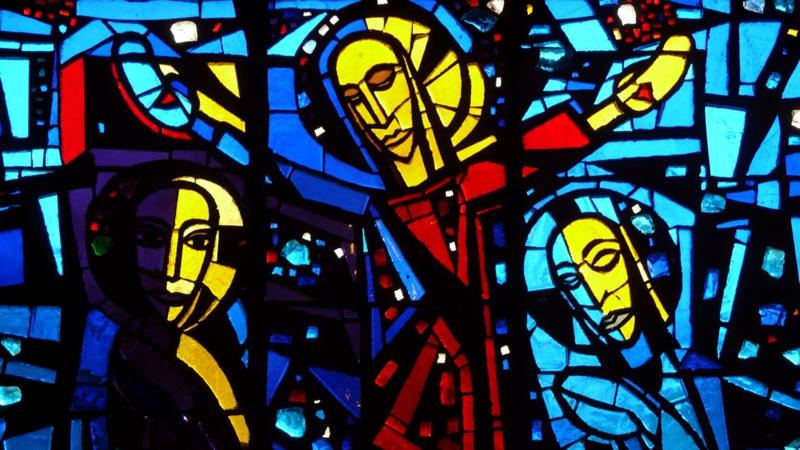As campaigns battle for votes in swing states like Pennsylvania, the focus is on faith-based voters, whose cultural and religious values drive their decisions.
That seems especially true for the Hispanic voting bloc, which could prove pivotal in November.
A recent panel hosted by Faith Forward explored voting patterns from the perspectives of evangelicals, the Church of Jesus Christ of Latter-day Saints, or LDS and Latino Christians.
Key issues, although nuanced in each group, include abortion and immigration – with the majority likely voting Republican.
Executive Director Yonce Shelton described the organization as a multi-faith network whose mission is to educate faith-rooted voters. He added that over 500 leaders in their network have endorsed Vice President Kamala Harris.
Dr. Robert Taber, national director of Latter-day Saints for Harris-Walz and associate professor of History at Fayetteville State University, said abortion is complicated within the Mormon faith.
The church recognizes the need for abortion in certain situations but has no official position on when life begins. In short, they value large families, but also support abortion access for managing late-term pregnancy complications.
Taber noted that although the Republican LDS vote has declined somewhat, it will likely still lean toward Trump in November.
Dr. Kristin Du Mez, professor of History and Gender Studies at Calvin University and fellow at the University of Notre Dame’s Center for the Philosophy of Religion, questioned whether abortion would remain the moral linchpin of the Christian right. While most evangelicals oppose it, many support some exceptions, and it ranks lower in priority compared to the issues of economics and immigration, she said.
Du Mez referenced a Pew survey estimating Trump support at 82%, and she suggested that white evangelicals may be less impactful than white mainline Protestants, Hispanic evangelicals and Catholics.
On immigration, she said most conservative white evangelicals align closely with Trump’s agenda, while Taber explained LDS voters have become more polarized because the church keeps its commitment to helping migrants and refugees.
Latino voters in the commonwealth are growing in number and influence. The latest data available is nearly 580,000 – or 6% of eligible voters.
Abortion and human sexuality are important to Latinos, said Rev. Carlos Malave, president of the Latino Christian Network. But while these topics are main draws for some to the Republican party, many Catholics will remain loyal to Democrats.
Immigration issues are complex for Latinos and Malave is concerned that some hold anti-immigrant sentiment.
Latinos, he said, believe both parties have failed them by dragging the issue out for years, using it for political gain. Democrats haven’t addressed their concerns, while Republicans have convinced them that new immigrants threaten their jobs and financial security, and falsely portray them as criminals.
Malave explained that differences in political preferences among Latinos are often based on their gender and country of origin. Additionally, most who immigrated to the U.S. in the last 40 years have a strong aversion to socialism – something he says Republicans have been successful at convincing Latino communities the Democrats are leading the country towards.
He spoke of Democratic outreach efforts encouraging Hispanics to focus on a broader range of issues, particularly in areas of high concentration, such as Allentown, Lancaster, and York – who are predominantly Puerto Rican, and whose experiences differ from Latin Americans.
He added that Puerto Ricans tend to be approving of the Democratic Party message.
This differs from what Richard Albino, ministry assistant at Central Assembly of God in Bethlehem, told The Center Square. He estimates that of the 1 million Hispanics in Pennsylvania, 40% are Puerto Rican, who are conservative on social and religious issues.
Like Malave, he admits the issue is nuanced. While cultural values do not necessarily bleed into political leanings, for many it’s how policies measure up to biblical standards. Albino believes Hispanic evangelicals will overwhelmingly vote Republican in the presidential election.
They stand for biblical marriage, but also believe in being compassionate to all, he said. Likewise with the influx of migrants, fixing legal status is encouraged. The cohort will help with resources, however, will not stand in the way of the law.
Albino said he believes the Hispanic community wants the government to “stop playing around” with the issue. And, while they don’t want families separated at the border, “we don’t want an open border where kids are being trafficked.”
He added that he also works with outreach organizations who educate Hispanics on issues, and the platforms and policies of the candidates.
“When you’re exposed to the truth, like we believe the word of God says, it sets us free,” he said. “It allows us to look at the world through the lens of biblical truth. And as a Christian looking at the platforms, there’s going to be some convicting happening in you when you consider some of the things the Democrat Party proposes.”






